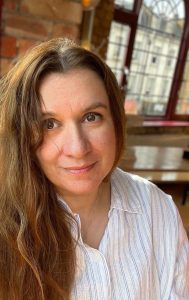For our final #WomenonWednesdays interview of 2023 we spoke to Dr Yasmin Andrew, student liaison officer and researcher in plasma physics!
As an introduction, what is your area of expertise within Physics?
My plasma physics research is on magnetically confined fusion. I plan and run experiments on a number conventional and spherical tokamaks across the world, including MAST-U and ST40 in Oxfordshire, and DIII-D in San Diego. The specific topic I work on, with a very talented team of physicists, is fusion plasma turbulence and self-organisation in a very narrow edge region of the tokamak. My interest in the dynamics of self-regulation between different plasma variables and causality, which I study using a combination of dedicated tokamak experiments, high resolution diagnostic data, 3-D turbulence simulations and novel statistical analysis approaches.
Describe your path into physics, what kickstarted it?
My undergraduate degree was in Pure and Applied Physics at the University of Manchester, and my PhD was in Physics with the Plasma Physics group at Imperial College of Science, Technology and Medicine, as it was called then. My BSc project was on experimental, low temperature plasma physics which inspired me to do my PhD project on the Joint European Torus (JET), using computational modelling and experimental data . It was very inspiring to work in the largest MCF research laboratory on cutting edge plasma experiments with physicists from all over the world. I went to the University of Wisconsin-Madison for a post-doc for a few years and then returned to work on JET as a research physicist. Over that time I specialised in Charge Exchange Recombination Spectroscopy development and the transport barrier physics of MCF plasmas.
During your journey, what has your experience been being a woman in Physics?
The proportion of women in physics in the UK has remained stubbornly low for the last thirty years despite many different initiatives at all levels of education and in workplaces. Things haven’t changed very much and the same problems remain. Although I was only British female physicist working on JET for many years, I was fortunate to work on such an international project with female physics from across Europe. For example, countries like Spain and Italy, with large fusion programmes, have much higher percentages of women in physics. The better gender balance in the European fusion research laboratory provided a supportive environment in the early days of my research.
Looking back, what advice would you have for your younger self?
Nobody said it would it be easy. Stay resilient and find the supportive, open minded and intelligent people to surround yourself with.